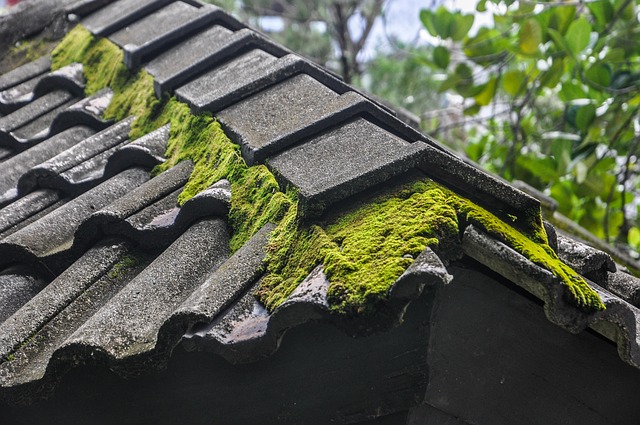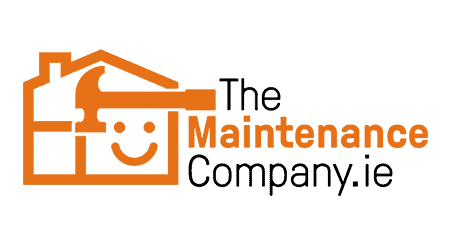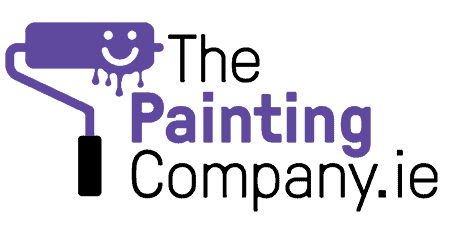When you spot moss, algae or staining creeping across your roof, it’s not just a cosmetic issue — it’s a warning sign. A professional roof clean using the right method can restore appearance, prevent damage, and extend your roof’s life. In this article you’ll learn why roof cleaning matters, how to choose the right method, and exactly how we carry out roof cleaning safely in Dublin and surrounding counties.
What Makes Moss, Algae & Lichens Thrive on Roofs?
Roofs, especially in damp climates like Dublin’s, provide ideal shade, moisture, and surface for moss, algae and lichens to grow. These organisms trap moisture, expand in frost, degrade mortar, and cause staining and internal damp over time.
Roofs offer a perfect habitat:
- They are exposed to rain, humidity and mist.
- North-facing slopes or shaded zones get less sun, letting moss flourish.
- Spores land there and spread via wind, birds or tree overhangs.
- Over time, they retain moisture against tile surfaces.
Without intervention, that growth not only looks unsightly — it can damage tiles, clog gutters, lead to roof leaks or rot in timbers below.
Why Should You Avoid Power Washing a Roof?
High-pressure washing (jetting) can strip granules or protective coatings, crack or lift tiles, force water under shingles, and shorten roof life. That’s why soft washing is the preferred method for safe, lasting roof cleans.
Here’s why pressure washing is risky:
- It can fracture fragile tiles or slates under force.
- It can drive water under tiles or membranes, causing leaks.
- It may strip coatings or protective layers on tiles.
- Many warranties forbid pressure washing.
Instead, a low pressure soft wash approach gently applies chemicals that kill spores without aggressive force, protecting your roof structure.
According to professional cleaning sources, soft washing is gentler, long-lasting, and safer for delicate roofing compared to pressure methods. (SoftWash UK Ltd)
How Does Soft Washing (Moss Removal) Work?
Soft washing applies a mild, biodegradable chemical solution at low pressure that kills moss and algae at their roots, then gently rinses them off. It both cleans and sterilises, preventing quick regrowth.
Typical soft wash process:
- Manual removal of loose moss and debris (often by hand or soft brush).
- Application of a soft wash chemical or biocide over the entire roof surface.
- Allow dwell time for the chemical to act on spores, roots and organic matter.
- Gentle rinse (very low pressure) to wash off loosened growth.
- Final sterilising to break any remaining reproductive cycle.
- Clean gutters, downpipes, fascia, and surrounding area.
- Over time, the roof will weather naturally and residual growth residues fall away.
We adopt exactly this method. Up to ~90% is often removed by hand first, then the soft wash ensures full sterilisation and prevents regrowth.
Where Does The Cleaning Company Operate (Service Area)?
We serve homes and businesses in Dublin, Wicklow, Kildare, Meath and nationwide across Ireland. Whether you’re in Dublin proper, the Kildare suburbs or further afield, our roof cleaning teams can come to you.
We’re proud to be one of Ireland’s leading roof cleaning providers. Our core areas:
- Domestic & commercial clients across Dublin, Kildare, Meath, Wicklow
- Projects large or small — city homes, rural dwellings, business premises
- Flexible scheduling and online booking via our website or by phone
No matter where you are in these counties, you can [book our Roof Cleaning service] with confidence.
What Risks Does Roof Growth Pose to Your Property?
Moss, algae and lichens harm your home by clogging gutters, holding excess moisture, cracking tiles in frost, staining surfaces, and even promoting internal damp or leaks if water is forced below shingles.
Risks in detail:
- Blocked gutters & downpipes from moss shedding, leading to overflow or water backing up.
- Moisture retention on tile surfaces, leading to freeze-thaw cycles that crack or erode tiles.
- Organic growth can eat into surfaces, weakening tile integrity.
- Water infiltration under tiles, causing leaks, damp patches, or rot in roof timbers.
- Accelerated ageing and need for earlier roof repair or replacement.
By removing the growth early, you prevent these issues and protect your home’s structure and value.
How Much Does Roof Cleaning Cost in Ireland?
Roof cleaning in Ireland typically ranges between €350 and €850, depending on roof size, complexity, tile type, accessibility, and level of moss/contamination
Cost factors include:
- Roof area and pitch — steeper or multiple facets cost more
- Type of roof material (tiles, slates, metal)
- Level of moss/algae density and difficulty of removal
- Access difficulties (height, scaffolding, safety equipment)
- Whether the service includes gutter clearing, fascia/soffit cleaning, site cleanup
We always provide transparent, up-front pricing, personalized quotes, and no hidden extras — so you know exactly what you’re paying for.
What Makes Us Dublin’s Trusted Roof Cleaning Provider?
We combine more than 1,300 five-star Google reviews, full insurance, skilled technicians, family-owned service, eco-friendly soft washing, and upfront pricing. That’s how we’ve earned trust across Dublin and beyond.
Key differentiators:
- Highly rated: 1,300+ 5-star reviews from clients
- Fully insured & professional staff
- Irish, family-owned (not a franchise)
- Friendly, reliable, and local approach
- Clean, branded vans and equipment
- Regular maintenance contracts available
- Eco-friendly chemical use and minimal environmental impact
These credentials give homeowners confidence that their roofs are in safe, capable hands.
What Steps Do We Take in Our Roof Cleaning Process?
We begin with manual moss removal, then treat the surface using our soft wash formula, clear gutters and exterior surfaces, sterilise the roof, and perform a full site cleanup to leave your property spotless.
Detailed process steps:
- Site survey & risk assessment
- Manual debris removal using extension poles & soft tools
- Application of our soft wash / moss removal solution to the roof
- Gentle rinsing and sterilisation to prevent regrowth
- Cleaning of gutters, fascia, soffits, and exterior windows
- Full site cleanup of drips, runoff, debris
- Final inspection and handover
Once treated, your roof’s self-cleansing period (with wind & rain) gently carries away remaining residues without damage.
What Other Surfaces Benefit from Soft Washing?
Soft washing isn’t just for roofs — it’s ideal for renders, gable ends, house facades, patios, driveways, and exterior walls where mildew, algae or staining appear. It cleans gently without blast damage.
Examples:
- Render & gable end cleaning on modern facades
- Exterior walls with streaking or mould
- Timber or composite cladding
- Patio slabs, driveways, paths (with appropriate pressure)
- Fences, decking, garden structures
Note: Like roofs, soft washing must be applied at low pressure to avoid damage to surfaces.
Why Does Roof Cleaning Enhance Property Value?
A well-maintained, clean roof boosts kerb appeal, protects structural integrity, reassures buyers or tenants, and reduces future repair costs — making it a smart investment in your home’s value.
Value benefits:
- Improves first impression and curb appeal
- Signals good maintenance to prospective buyers
- Reduces risk of hidden damage on sale inspection
- Extends roof lifespan, saving on large replacement costs
- Prevents damage that could deter insurance claims
In Dublin’s competitive property market, a clean, safe roof can tip the balance in your favour.
How Often Should You Schedule Roof Cleaning?
We generally recommend a roof clean every 3 to 5 years depending on exposure, tree coverage, and moss regrowth rate. More frequent inspections (annually) help catch early growth before major spread.
Guidelines:
- Inspect annually for moss, dark streaks or staining
- Clean every 3–5 years, or sooner if heavy shading or tree cover
- Clean sooner in damp, shaded zones
- Consider maintenance contracts to schedule recurring cleans
A proactive schedule helps prevent damage and keeps repair costs lower.
Frequently Asked Questions About Roof Cleaning
These FAQs answer common homeowner queries about roof cleaning, methods, safety, costs and maintenance. Use them to reassure your readers or embed in a Q&A section of your blog.
Q: Is roof cleaning safe for older roofs?
Yes — when done via low-pressure soft washing rather than high-pressure jetting. The chemical solution kills growth without damaging fragile tiles, membranes or coatings.
Q: Can soft wash chemicals harm plants or garden?
No — professional soft wash formulas are biodegradable and diluted to safe levels. Our method controls runoff to protect surrounding landscaping.
Q: Will moss come back after a clean?
Any roof may see some regrowth over time, but soft washing weakens spores and inhibits the cycle. Maintenance cleans (every few years) keep regrowth minimal.
Q: How long does the cleaning take?
Most domestic roofs take 1–2 days (depending on size, complexity). Commercial or large roofs may need more time for safety and access.
Q: Do I need scaffolding?
Sometimes yes — for steep roofs, multiple stories or restricted access, scaffolding or safety harness systems are used.
Q: Is roof cleaning insured?
Always choose a company with full public liability, employer liability, and work-at-height insurance. We carry all necessary insurance for your peace of mind.
Q: Can I do DIY roof cleaning?
It’s not recommended. Without proper training, aggressive methods may damage the roof, void warranties, or create safety hazards.
Now is the time to book your Roof Cleaning
Your roof is one of your home’s most exposed and vulnerable surfaces. Letting moss, algae or lichens take hold risks damage, leaks and costly repairs. But with the soft wash method you achieve a deep, safe, long-lasting clean.
If you want to see how we transform your roof, book our professional Roof Cleaning service now. Imagine your home looking fresh, protected and ready for years to come — that’s what we deliver.
What if your next roof cleaning prevented thousands in repair bills later? Let’s get your roof in prime condition today.










One Response
Let us know your thoughts!